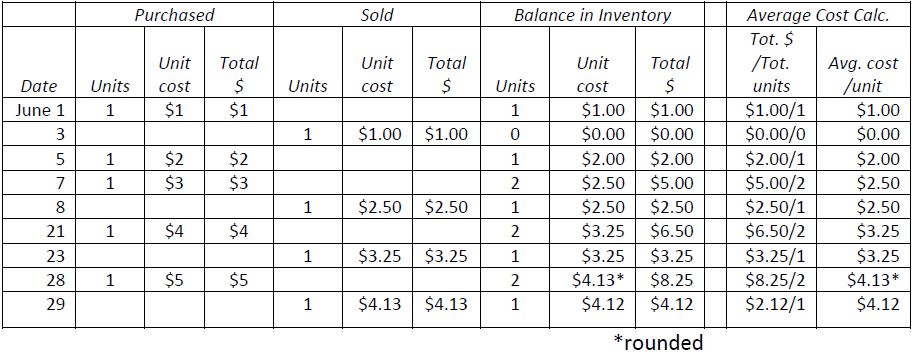Bookkeeping basics: A guide for small businesses

Small-business taxes vary between industries, states, and business types, so to get the best advice on what taxes your business needs to pay, consult with your accountant. For the most part, though, you’ll probably end up paying income taxes, sales taxes, and payroll taxes. Most accounting software automates entering information from the documents above. For instance, receipt scanners let you take photos of receipts that you upload to your software for easy journal-entry generation.
A payroll service provider can do all this to save you time and ensure accuracy at a reasonable cost. If you have employees, you likely need to run payroll weekly, but your pay period may also fall into a different category, such as bi-weekly or semi-monthly. You’ll want to process payroll on your set dates and research your payroll tax requirements, which can differ for each business. You’ll want to do invoicing weekly in most cases, although some businesses may invoice monthly or as they make credit sales. Based on the nature of your business, you might decide to offer credit to customers.
How frequently should you update your books?
Business accounting is the process of gathering and analyzing financial information on business activity, recording transactions, and producing financial statements. At the end of the accounting period, the accountant must prepare the adjusting entries to update the accounts that are summarized in the financial statements. Whereas double-entry bookkeeping is based on the accrual-accounting method.
Crucial documents for accurate accounting
The first step you’ll need is a business bank account, which allows you to keep your personal and business expenses separate. Bank accounts allow businesses to safely store their money and make transactions easily. There are several types of business bank accounts, each with its own purpose and benefits. When setting up accounting for startups, you need to choose a method of recording financial transactions.
- Instead of crunching numbers, you’ll be free to focus on other tasks that are necessary to run or scale your business.
- He is an expert on personal finance, corporate finance and real estate and has assisted thousands of clients in meeting their financial goals over his career.
- If you’re self-employed, you’ll pay self-employment taxes, which is a little different from small-business taxes and personal taxes.
- It will help you reserve enough money to pay bills, employees, and suppliers.
- The cost of an accountant for a small business will depend on many factors.
What this means is that for each journal entry, two accounts are affected at one time. For any other small business however, going for online accounting software will be the better choice. It will save you time, money, and it will also ensure that your records are always accurate. You’ve opened a business checking account, chosen your accounting method, how to learn ifrs and decided how you’re going to keep your books.
Prepare and review financials
This can be as simple as a statement showing your current cash position, expected upcoming cash receipts, and expected cash payments for this period. This way, you’ll be able to access your accounting records from any device. Similarly, whenever you make an expense, the journal entry is automatically created, and it is mapped to the correct ledger account. establishing credit terms for customers In this day and age, more and more businesses are switching from receiving payments offline to online. Deskera offers both accounting and HRIS software allowing you to manage your accounting and payroll, all in one place. The most fundamental part of accounting, especially for a small business, is keeping accurate track of any cost that the business incurs.
And if you send invoices or pay bills with your software, the numbers should sync automatically with your ledger. As a responsible business owner, you need to record every single financial transaction you make—so the answer might depend on how many bills you pay and invoices you send out. At the very least, you’ll want to sit down for bookkeeping monthly, but we strongly recommend you update your books at least weekly, though preferably daily. People who aren’t small-business accountants or often use bookkeeping how can i invoice clients in hubstaff time tracking and accounting interchangeably, but they actually mean two different things. Accounting means not just keeping financial records but also analyzing and interpreting financial data so you can make wise fiscal decisions. The key is to ensure every transaction is recorded correctly and in the right account.

If you opt in for desktop accounting software like SAP for example, you’ll end up paying a ton of money every month (upwards of $1,000-$5,000) for it. Deskera allows you to integrate your bank accounts directly in order to track payments and expenses automatically. When a payment is processed, the bank and the accounts receivable are adjusted automatically by the accounting software. The importance of accounting for small businesses can’t be underestimated. Whether you’re starting a brand-new business or you have some experience under your belt, creating a solid accounting plan can help you monitor and maintain your financial health. If you follow the tips we’ve laid out above, you’ll likely be able to focus some of your time on other important facets of your business.
Choosing an intuitive and easy-to-use system can help streamline your entire business accounting process, and save you tons of time. You might choose to use document management software to keep track of key financial information and statements. You’ll want to periodically back up your files and ensure that you’re adhering to security protocols so your information isn’t compromised.
The best bookkeeping software syncs with your business bank account and payroll systems so that you’re easily able to import and export transaction history. We’ll cover some of the best business bookkeeping software options a little later. In order to keep track of your finances, having a daily record of your transactions is crucial. This is done through a process known as bookkeeping, which is recording your purchases, sales, receipts and payments on a day-to-day basis. While doing so, categorize each transaction into related buckets that are part of the overall income statement and balance sheet for the month.
